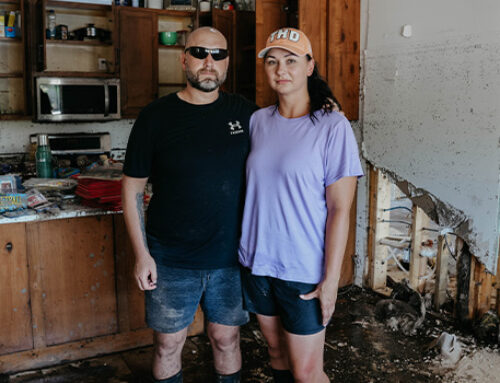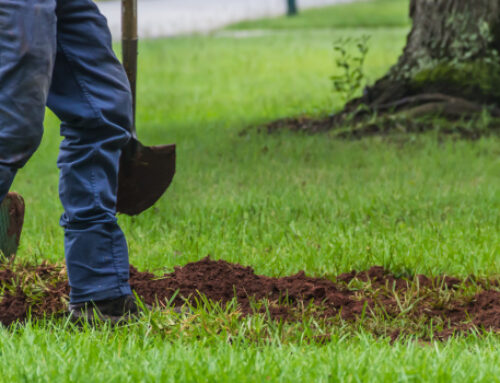HOA’s are responsible for protecting the property values of the community. To do this, the board must enforce certain rules and restrictions. While some may find this to be a bit intrusive, the benefit of compliance with the regulations outweighs the inconvenience and benefits the homeowner. When the rules are followed, the homeowner doesn’t have to worry about the prospect of penalty.
So, how, exactly, can a homeowner avoid violations? The answer can best be summed up in three words: Know the Rules! Every homeowner should know exactly what they are signing up for before purchasing a home in an HOA neighborhood.
In this article, we will discuss the 7 most common areas in which residents receive HOA violations and how you can avoid them.
- Rentals – Most HOAs require you to get written permission to rent your home and are able to place limits on type and length of rental (for example long-term rental vs. Airbnb or other vacation rentals). The reason for this is because an abundance of renters can result in frequent resident turnover, so rental houses in HOA communities are often undesirable. Some communities put a cap on the number of long-term rentals allowed in the community at any given time, while others prohibit it altogether. Make sure you know the rules regarding rentals before proceeding with any listings.
- Vehicles – Rules placed on the number and type of vehicles that can be stored in the visible parts of your property are very common within HOAs. This often includes limiting or banning things like motorcycles, boats, RVs, broken cars, and the like. There can also be limits on the number of vehicles that can be parked in front of your house, and often, regulations on street parking, as well. These vary from community to community; however, this is definitely one of the top violations that homeowners face. These types of violations are completely preventable when the homeowner knows what is permitted and what is not!
- Garbage Bins – HOAs are strict about when you can put your trash cans out on the curb and when you must bring them in. Some HOAs require your trash bins to be stored out of sight because trash can attract pests and make the neighborhood look unsightly. If you are going out of town, you can easily avoid a violation by planning ahead and asking a friend or neighbor to take your bins out or pull them off the curb for you. Additionally, be sure to know and follow any rules about bulky items being left on the curb on trash day. Any rules or expectations regarding garbage bins will be clearly spelled out in the governing documents for your community.
- Landscaping – Overgrown lawns and weeds will make your home, and thereby the community, look unkempt, and could result in a fine if left too long. Usually, you will receive one or two warnings before getting a fine. In addition to lawn maintenance, the HOA also takes an interest in the addition and/or removal of rocks, flowerbeds, porch pots, and other exterior decorations on your property. You will likely be required to get approval for any changes you intend to make to your landscaping. If you’re not required to get approval, there may still be limits to the kinds of flowers, shrubs, or other landscaping choices you can make. The rules may also dictate whether you can plant or take away trees or plants without prior approval. Understanding the rules before you plan changes or buy materials can easily save you from getting a fine for unknowingly breaking the rules.
- Visible Property Changes – Architectural design standards almost always require association approval. The appearance of your home is one of the top things that an HOA governs in order to keep the community looking well-kept, uniform, and in good condition. Decisions such as changing your paint color, switching your front door or mailbox, or making any other changes or additions to the exterior of your home will likely require HOA approval. Failure to submit an Architectural Control Committee Improvement Request will almost certainly result in a fine! Simply reading through your community CC&Rs can save you a whole lot of trouble and, potentially, whole lot of time and money.
- Pets – Limits on number and types of pets, including breed and weight limits, that homeowners can keep on property is fairly standard within HOA communities. The CC&Rs can also dictate whether or not there are leash restrictions within the community. Knowing all rules regarding pets is crucial for all pet owners who are considering homes within a specific neighborhood because they should know if their pets comply with community standards before the decision to purchase a home in the association.
- Holiday Decorations – Your HOA likely has certain rules regarding holiday decorations, including when they can be put up and when they must be taken down. There might also be restrictions about types of decorations (think limits on light brightness, music, blow-up decorations, etc.).
As with the others listed before, this is such a simple area to make a mistake in if you don’t know beforehand what is expected of you. Knowing the dates during which decorations are acceptable so that you can mark them on your calendar will help you avoid any violations.
The best way to avoid HOA violations and the associated fees is to be proactive in knowing and understanding the CC&Rs in your community. Ask questions about anything that in unclear and always communicate with your management company and/or HOA board. Most violations occur without the homeowner even knowing that he is doing something wrong.
Communication and knowledge are the two most important tools that homeowners have in avoiding HOA violations and fines.







